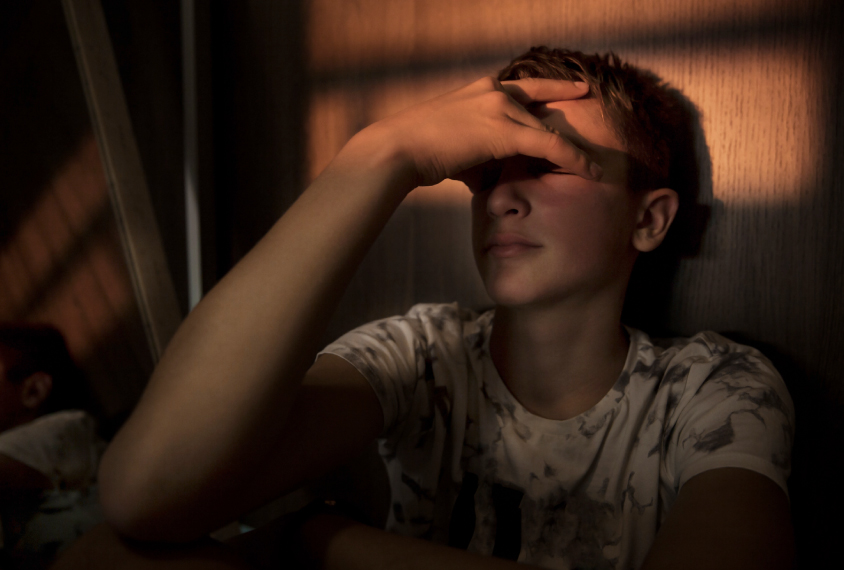
‘Flattening the curve’ may pose tough challenge for autistic people
Social distancing may pose special challenges for people with autism and their caregivers.
The coronavirus pandemic has shuttered schools, transformed hospitals and radically altered daily life. These changes are stressful for everyone but may pose unique challenges for autistic people — many of whom are being cut off from day programs, school services and in-person medical appointments.
“All of us are having trouble adjusting to the very rapidly changing realities around us,” says Matthew Siegel, director of the Developmental Disorders Inpatient Research Collaborative at Spring Harbor Hospital in Westbrook, Maine. “The ability to manage those worries is even harder for some people with autism.”
But even as autistic people’s needs grow, many autism clinics are postponing or canceling nonessential appointments as they switch to telehealth, and behavioral therapy centers have also either stopped or decreased in-person sessions. Some residential treatment centers have closed to outside visitors, cutting residents off from their families. And as schools make the switch to remote instruction, students on the spectrum may receive fewer services, such as speech and occupational therapy.
All of these disruptions could have long-term consequences, including delays in autism diagnoses.
“This is going to be hugely detrimental to our kids and families,” says Sarah Spence, co-director of the Autism Spectrum Center at Boston Children’s Hospital in Massachusetts.
People with autism often have anxiety and struggle with even small changes to their routine. To prepare their autistic clients for major life transitions, psychologists usually start talking with them months in advance.
But the pandemic “isn’t a gradual change that they could have been prepared for,” says Jill Fodstad, associate professor of clinical psychology at Indiana University in Indianapolis.
Without the daily rhythms of school, work and familiar outings, she and others warn, people with autism may have trouble regulating their emotions and keeping their anxiety in check.
Socially distant:
Even the disruption of weekends and holidays can distress 16-year-old Jack Ursitti, who has autism and intellectual disability and is prone to self-injury. His mother is concerned that the added stress from the closure of his year-round intensive day program earlier this month may trigger Jack to harm himself, which could mean a trip to an overtaxed emergency room.
“He is the kind of person who thrives on the opportunity to stay busy and be in the community,” his mother, Judith Ursitti, says. “It’s hard for him to lose that structure.”
Ursitti and her husband, who both work full-time, are taking turns caring for Jack at home. They have stocked up on his medications, including the anxiety drug lorazepam (Ativan), which they used during previous behavioral crises. She and Jack are also going on regular runs to try to manage his stress.
Even autistic people who usually need limited support can struggle with executive function, making it challenging to reschedule plans, rearrange work schedules and stock up on groceries.
“I’m feeling a lot more prone to shutdown than usual because I am so overwhelmed by tasks that are objectively very urgent,” says Josefina Troncoso, an autistic advocate with the U.K.-based nonprofit Ambitious about Autism. She says she found it difficult to book a flight from England to her hometown in Chile as the pandemic ramped up and made it back just hours before the country closed its borders.
The pandemic has also exacerbated Troncoso’s obsessive-compulsive disorder which, like anxiety, commonly co-occurs with autism. It has broadened her usual phobia about contamination from fleas and lice to germs, and given her a new obsession with washing her hands. “It’s kind of triggering a fear that didn’t used to be there,” she says.
To cope, Troncoso snuggles under her weighted blanket, talks with her mother and watches episodes of her favorite anime.
“It’s like being lost in the wilderness and finding this one little cave that you can take shelter in,” she says.
Negative consequences:
Clinicians who help autistic people are trying to accommodate their needs as best they can.
Siegel says he held one appointment in the parking lot of his clinic earlier this month for a client who refused to enter the building for fear of contracting the virus.
Still, many people with autism are trying to manage their worsening anxiety with little support.
And without support and services, some could experience regressions in behavior and in cognitive or language skills, Spence says.
Switching to telemedicine has made it easier to meet with some clients with autism who find in-person doctor’s visits stressful, Spence says. But the center does not typically offer virtual visits to new clients, and this could slow down or impede diagnoses.
“We are agonizing over what to do for the patients who are scheduled for a new diagnostic visit — to further put off a family that has been waiting for a diagnosis is hard to fathom,” she says. “But we have to weigh that against the public-health issue of having people come to the hospital and wait in waiting rooms filled with people.”
Recommended reading

Expediting clinical trials for profound autism: Q&A with Matthew State

Too much or too little brain synchrony may underlie autism subtypes
Explore more from The Transmitter

Mitochondrial ‘landscape’ shifts across human brain

